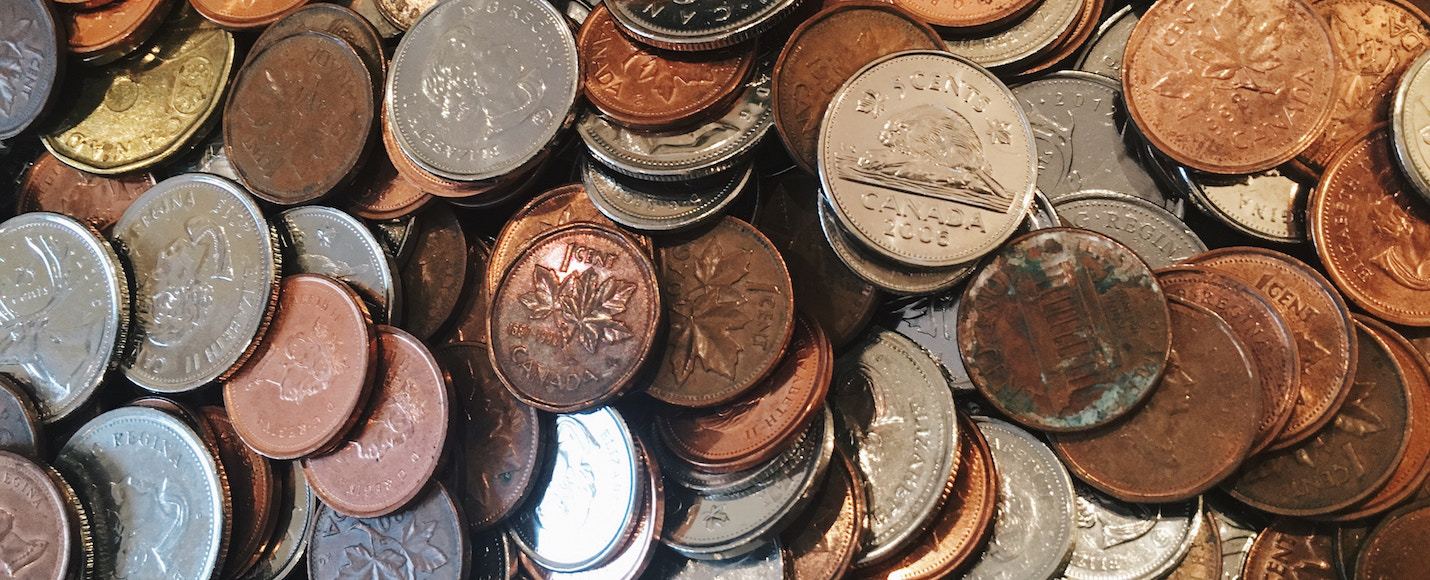
Keeping cash in your The Ridge is no problem at all, whether you choose to go with the cash strap or the money clip. However, in your effort to streamline and minimalize your day-to-day life, there’s one element of the daily purchasing experience which still might be weighing your pockets down: all that spare change.
Whether due to your local sales tax, and/or the fact that items are often priced with an extra .99 cents attached, the chances are big that if you’re using cash, you’re also collecting quite a bit of change. At first this might seem like no big deal, but the assortment of different coins in your pocket can eventually feel like a lead weight.
Some might be tempted to just discard their coins or give them away, but we’d recommend that you think otherwise. While loose change might seem like a problem, it can be a blessing in disguise.
Yes, the original form of passive income. You probably remember this from when you were a kid, and the benefits are still the same today. While you don’t need a literal piggy bank—any jar or bowl will do—it’s worth considering the notion of having a bank that you drop all your spare change in at the end of the day. While the earnings are slow, they accumulate over time. Eventually you’d be surprised by how much money you end up gaining without even thinking about it.
Many people have bought plane tickets or holiday presents on their piggy bank income. If you don’t want to go through the hassle of counting all the coins, the modern day has presented a solution for that as well: there are now many coin jars with a counting feature included, such as the Emerson Digital Coin-Counting Money Jar, so you can always know what amount you’ve been collecting.
If you’re like most of the working population out there, you probably start a lot of your mornings with a cup of coffee or tea. If you’re in a rush, there’s a good chance that you often pick up that coffee somewhere on the road, rather than making it at home. Whether you go to Starbucks or the local coffee shop, each coffee probably costs between $1 to $5, give or take. Rather than swiping your card everyday, these daily coffees are an excellent opportunity to dump out your spare change.
If you use cash a lot, chances are that you often collect a pound of quarters and dimes in your pocket. If you make it habit to use these coins as your coffee fund, the fabric of your pants pocket will thank you, and you won’t see so many coffee purchases on your statement every month.
On a similar note, if you make a habit of going out to restaurants a lot — or bars, or coffee shops — you can start making it a habit to regularly dump out your coins on the table, as an additional tip. Depending on the price of your meal, you’ll probably want to tip more than that. However, if you find pocket change a nuisance, this presents a great chance to make sure it goes to someone who could really use the extra coins.
Let’s say that you collect a lot of spare change throughout the week, every week. Or maybe it’s just a couple of dollars worth of change, but still, that can feel pretty heavy after a while. If you don’t want to start putting your change in a jar, then you probably feel like this change is “extra” money which you might not want. So why not turn your fortunes around, and buy yourself a treat with this spare change? Better yet, make it a weekly habit.
It can be something small. Really, since we’re talking about spare change, it probably will be small. But the key here is to find something small that you wouldn’t normally buy for yourself—a candy bar, an extra coffee, a DVD, whatever—and spend your extra change on it, making the item feel “free.” If you want to turn a negative into a positive, this is one of the best ways.